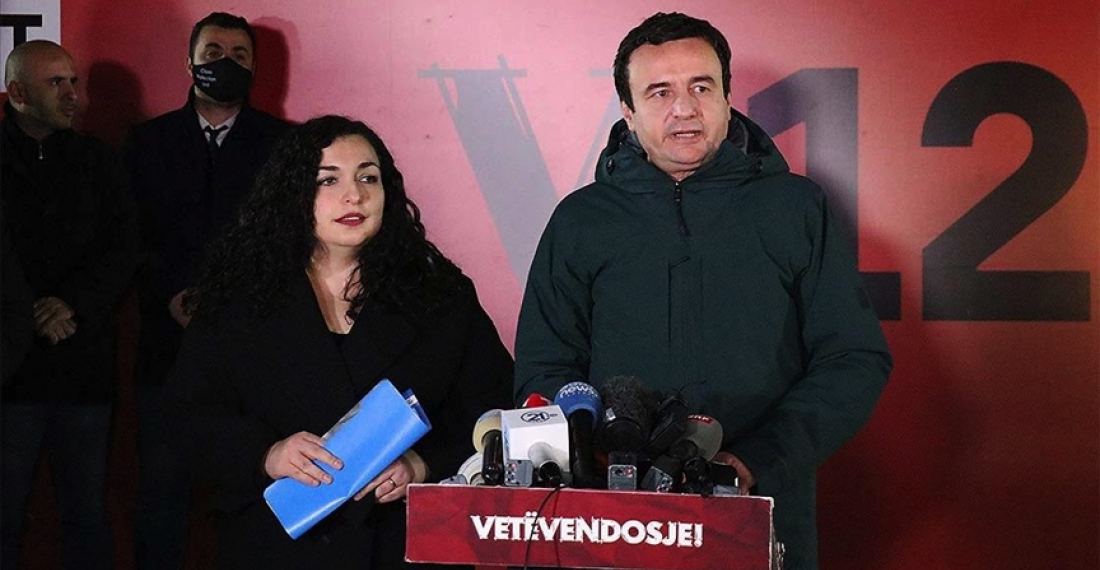Albin Kurti has been elected prime minister of Kosovo after his party secured a clear victory in elections held on Sunday (14 February). 28 parties and groups contested for the 120 seat parliament.
According to preliminary results, Vetevendosje had 48 percent of the vote, leaving other parties trailing behind, with the Democratic Party of Kosovo (PDK) gaining about 18 percent, the Democratic League of Kosovo (LDK) with 13 percent, and the Alliance for the Future of Kosovo (AAK) with about 7 percent.
Voter turnout was 47 percent, the Central Election Commission said. The preliminary results do not include conditional votes, ballots that were mailed in, and the votes of people with special needs.
Kurti acknowledged that Vetevendosje, even with its strong finish, will still be short of 61 votes to form a majority in parliament, meaning the party likely will have to join forces with at least one other party to govern. He said the new government’s priorities will be justice and employment. In a victory speech in the capital Pristina, Kurti said:
"We have a lot of work and tasks ahead, because the country is in multiple crisis. The road ahead is long. There will be obstacles, we will make mistakes, but our goal is good and noble. I will always be open to you. We will not take revenge on anyone. We will demand responsibility to everyone and everywhere."
Kosovo used to be part of Yugoslavia and was recognised as an independent country by around one hundred countries shortly after the end of the conflict in the Balkans. A number of countries, including some EU member states, have not extended recognition. The European Union is engaged in a process of building reconciliation between Serbia and Kosovo, and sees them both as potential members in the future.







